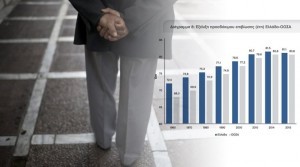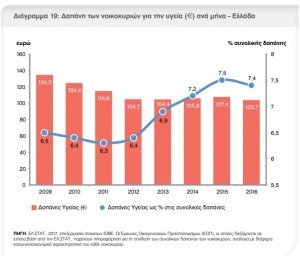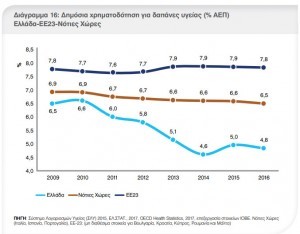The data on life expectancy for Greece is disappointing, according to an OECD report, as the figures show that it will decline for the first time in 2015.
As shown in the table, while the life expectancy of the Greek population was on the rise in until 2014, in 2015 there was a decrease for the first time, while the report showed that in other OECD countries life expectancy remained stable.
Life Expectancy-Greece OECD (years)
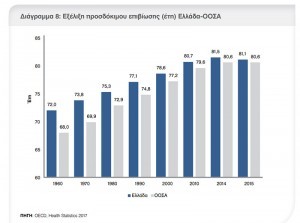
Life expectancy in Greece in 2015 was similar to the EU-22 average of 81.1 years, compared with 82.6 for the southern countries, and according to UN estimates it is expected to reach 84 in 2030. The highest life expectancy was found in countries such as Spain, Switzerland, and Italy.
Life Expectancy (years) Greece – EU23-southern countries (2015)
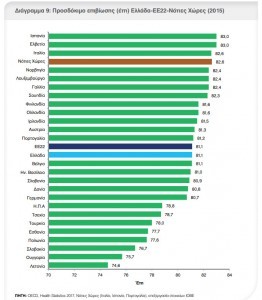
It stands to reason that the harsh cuts in public spending, which consequently also affected cutbacks in the public health sector, adversely impacted the services offered to the less privileged.
Total funding for health spending declined by a massive 32.4% in the period 2010-2016 (-0.6% in the southern countries, +11.8% in the EU) and stood at 14.6 billion in 2016 (8, 3% of GDP), while public funding for health spending declined by 42.5% (-5.7% in the southern countries, +10.1% in the EU) over the same period, standing at 8.5 billion euros in 2016 (4.8% of GDP).
Population over 65 years (% total population) Greece-EU28
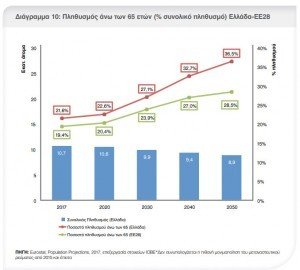
The reduction in public funding has resulted in a shifting of health spending to the private sector, with private funding reaching 40.9% in 2016 (27% in the Southern countries, 21% in the EU). Taking into account the fact that there is a lot of unemployment, a big drop in salaries and pensions in Greece, it is reasonable to assume that the many Greeks with meagre or no income are unable to cover their medical costs.
Household spending on health (€) per month-Greece
Population with chronic disease (million) per age group (2014)
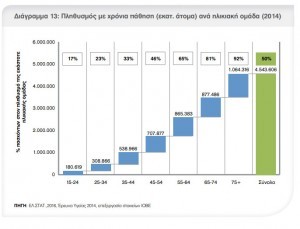
In 2009, total funding for health spending in Greece amounted to 9.5% of GDP, while in 2016 it was reduced to 8.3%, indicative of a faster reduction in health expenditure than GDP declined over the same period. Public funding for health expenditure as a percentage of GDP in Greece reached 4.8% in 2016 compared to 6.5% in 2009.
Public funding for health expenditure (% GDP)-Greece-EU23-southern countries
This is considerably less than the EU (7.8%), while in the southern countries that have implemented fiscal adjustment programs the figure was at 6, 5% in the same year (2016).
Health spending distribution (%) for households -Greece
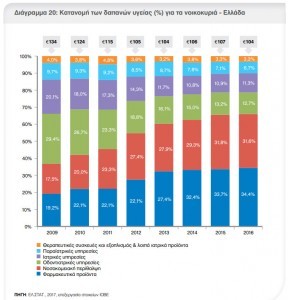
Meanwhile, an even more worrying projection is that the population of Greece is estimated to fall below 9 million by 2050, from the 11 million now. At the same time, estimates cast the population of Greece, from nearly 11 million in 2017, if the ageing population continues to rise at its current rate.
Ask me anything
Explore related questions
